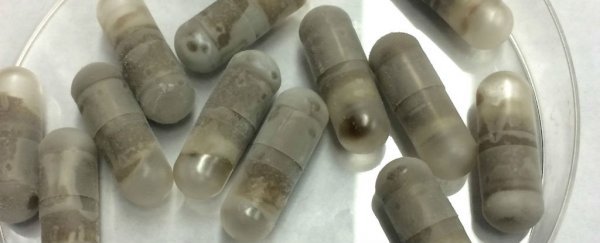If you want to lose weight, a new diet or gym membership sounds a whole lot better than consuming someone else's poop in pill form, but that's exactly the method researchers are about to investigate in a clinical trial that's been approved for later this year.
It's not the most pleasant treatment you can imagine, but there's strong evidence that faeces is good for the microbiome environment inside our guts. Reports have shown that in some situations, poop pills are actually more effective than antibiotics, and now there's some strong demand for healthy body waste if you're interested in parting with some for a bit of cash.
The controlled, randomised trial starting this year will be run by researchers at the Massachusetts General Hospital. Based on research that suggests bacteria from donor excrement can fight infections that have become rooted in the digestive system of the recipient, they'll be testing if poop pills could be a viable treatment option for weight-loss in the future.
"Faecal microbiota transplantation (FMT) transfers intestinal bacteria by a 'stool transplant' from a healthy, lean person to a person with obesity," the researchers explain.
Poop samples from lean and healthy donors will be freeze-dried and then given to 21 obese patients during the course of the trial.
There's a growing belief that this kind of treatment could help with weight-loss and various other metabolic disorders, but so far we only have a few animal studies and some anecdotal evidence in humans to go off. This new study should give us much more information about the potential of the humble poop pill.
Lead researcher for the trial, Elaine Yu, told Beth Mole at Ars Technica that the clinical trial team has "no idea what the result will be" at this stage, but the researchers should be able to learn much more about the microbes in our bodies and how they affect us along the way.
The donors are going to be carefully screened to make sure they - and their poo samples - are as healthy as possible. The treatment will last for at least three months, and possibly continuing for a year or beyond.
It's still early days for the field of microbiome analysis, but there have been some interesting studies carried out in the past. A 2013 study found that gut bacteria transplanted from human twins into mice had a direct effect on the animals' weight - those given bacteria from the overweight twin also gained weight, while the other group maintained a healthy size.
